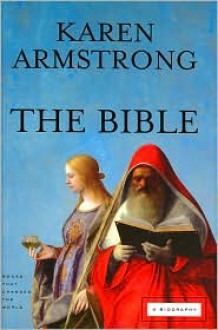For many, the Bible is the Word of God, written by Him, discovered by Man as if left in the drawer of some ancient hotel bedside table. Karen Armstrong's The Bible: A Biography traces the evolution of this mysterious and malleable text, showing it to be --no less than any other living thing -- a...
show more
For many, the Bible is the Word of God, written by Him, discovered by Man as if left in the drawer of some ancient hotel bedside table. Karen Armstrong's The Bible: A Biography traces the evolution of this mysterious and malleable text, showing it to be --no less than any other living thing -- a product of natural selection, written and winnowed over many centuries in response to changing political climates, and only in danger of extinction when stripped of its divine mutability. From the beginning, priests were reluctant to record sacred oral traditions for fear that writing them down would encourage stridency and inflexibility. Revelation must be an ongoing process, and only those texts that best lent themselves to reinterpretation made the cut. Times of greatest societal stress spurred the greatest creativity: Jewish exile following the destruction of the First Temple gave us Torah's Law and the Prophets; the destruction of the Second Temple spawned the books of the New Testament. As a form of consolation after trauma, men wrestled with the the Bible's more obscure passages, glossing and allegorizing in a feisty dialogue with their sometimes incomprehensible creator. The Enlightenment, however, came to demand a new scientific certainty, which, ironically, gave birth to both Darwinism and the backlash of modern fundamentalism. Now, Armstrong postulates, our war-torn, genocidal era reads literal, prophetic meaning into the Book of Revelations, originally written as an anguished revenge fantasy against Roman persecution. The great first-century rabbi Meir wrote that any interpretation spreading hatred or disdain was illegitimate, and Armstrong ends with a plea for a return by members of all faiths to more charitable exegesis, lest the Bible, that most historically supple of books, calcify and become the dangerous weapon our forefathers feared. --Sheri Holman
show less

